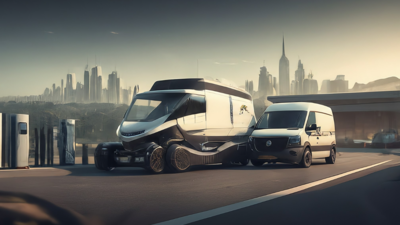ARTICLE AD BOX

BENGALURU: A new wave of startups and financiers is reshaping how electric commercial vehicles (EVs) are funded in India, as early signs of scale emerge in a segment once seen as too niche or risky for institutional capital.From battery subscription models to flexible EMIs and first-loss guarantee partnerships, lenders are adapting financing structures to match the economics of EVs and the credit realities of small commercial operators.Innovative approaches now cater to EV-specific needs. Some lenders offer battery subscriptions, allowing buyers to pay per use-like fuel-instead of bearing the entire upfront battery cost. Others provide flexible EMIs that vary based on vehicle usage, easing repayment stress for driver-owners with variable incomes. Additionally, several startups are partnering with NBFCs through first-loss guarantee (FLDG) structures, where startups cover a portion of defaults, helping de-risk lending to customers without formal credit histories. At the forefront is VidyutTech, which separates EV chassis and battery financing. "In an ICE vehicle, fuel is an operating expense. But in an EV, the battery-30-40% of the vehicle cost-is prepaid fuel.
"This shifts the depreciation curve and risk," said co-founder Xitij Kothi. Vidyut offers fixed EMIs for the vehicle and per-kilometre battery charging. Mufin Green Finance, managing an AUM of Rs 1,100 crore, deployed over Rs 800 crore in EV financing, much of it focused on battery-only loans. "Many buyers pay upfront for the vehicle and finance only the battery, which is 30-40% of the cost," said chief business officer Dhiraj Agrawal.
Mufin's battery finance portfolio stands at Rs 70-Rs 80 crore and is expected to grow as this model gains traction.Pay-per-use structures address key ownership anxieties for EV buyers, especially individual drivers. "About 35-40% of our customers have no formal credit history. We do physical verification, involve co-applicants, and assess viability before underwriting," said Kothi.



.png)
.png)
.png)
















 11 hours ago
5
11 hours ago
5









 English (US) ·
English (US) ·